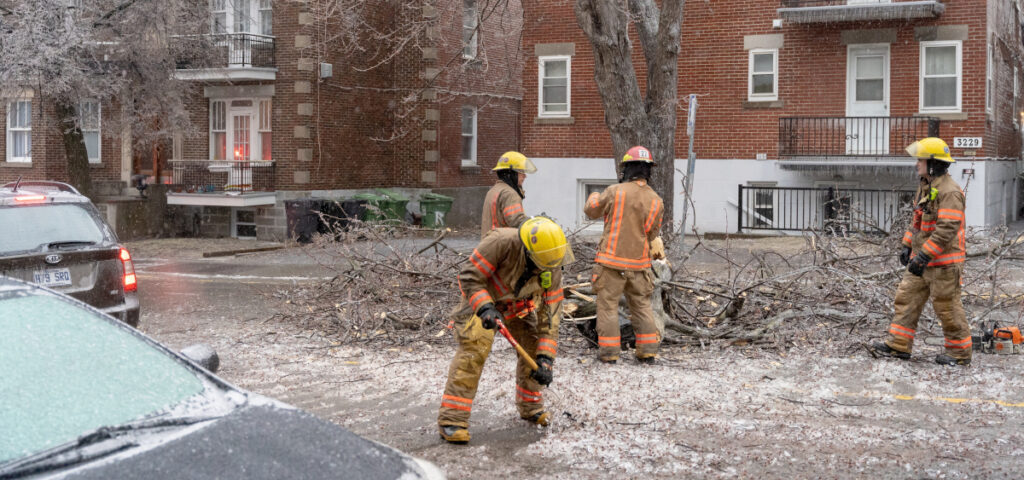“Superior force” is a legal concept meaning something that is unpredictable, beyond our control, and impossible to prevent. Last month’s ice storm and the COVID pandemic are two examples. Why does it matter? Because it can free a person from their legal obligations.


The COVID pandemic
Some people have argued that the pandemic was a situation of superior force which freed them from performing their legal obligations. This argument was examined in several court cases.
In August 2020, a man renting a luxury apartment in Laval applied to the Tribunal administratif du Québec (TAL, formerly Régie du logement or rental board) for a rent reduction. He argued he was not benefitting from services that were included in his high rent. The landlord had indeed closed access to the swimming pool and a terrace to comply with public health directives relating to COVID-19.
The TAL confirmed that the pandemic was a situation of superior force. Consequently, the landlord was not obliged to provide the services in question. Indeed, he was not allowed to provide them due to public health directives. However, the TAL decided that the tenant was entitled to a rent reduction of $150 per month for six months, given that he was deprived of services included in his lease.
That same month, the Superior Court of Quebec considered a similar argument. Earlier in 2020, a couple had made an offer on a house, which was accepted. The public health emergency was declared in March 2020, but the couple and the sellers reconfirmed that the sale would go ahead in April. The couple even sublet their apartment as of the date they were supposed to move into the house. However, the sellers tried to back out of the deal, arguing superior force because they could not find a new place to move into. The couple then sued the sellers.
The Superior Court decided that this was not a situation of superior force. In the court’s view, the pandemic didn’t make it impossible for the sellers to go ahead with the sale. To succeed with the superior force argument, the sellers would have had to show they’d made serious efforts to find other accommodations but that it had proven impossible. The fact that it might be more complicated or expensive to find another place to live did not create a situation of superior force. The court therefore ordered the sellers to go ahead with the sale and to compensate the buyers for additional expenses they had incurred due to the delay.
An age-old concept
Superior force can be man-made, such as war, revolution or a state of emergency, such as that declared for the pandemic. It can also result from natural causes or even from the act of a single person.
On November 15, 1995, gusts of wind reaching 96 kilometres per hour hit Quebec. The carport of a resident was swept up by the wind and slammed against a neighbour’s house. Two years later, the Court of Quebec decided that the carport owner could not be held responsible for damages caused to the neighbour’s house as it was a situation of superior force.
In a 1998 judgment, the Superior Court considered the situation of a young girl bitten by a dog. The girl was petting the dog, who was sitting peacefully. A young boy playing nearby fell on the girl, throwing her against the dog, who reacted instinctively and bit the girl. The girl’s parents sued the dog’s owner, seeking compensation for the girl’s injuries.
The dog’s owner ran a nature centre, and the dog was his pet. The dog was accustomed to having children around and had never shown signs of aggressiveness or caused any problems.
The court ruled that the actions of someone who did not directly cause the damage, such as the boy in this case, amounted to a situation of superior force which freed the dog’s owner from responsibility for the harm caused. In the court’s view, the boy’s actions were unpredictable and beyond the control of the dog’s owner, who could have done nothing to prevent them. This met the criteria for a situation of superior force.
|
In Brief An event can be considered a situation of superior force which frees a person from their legal responsibility – or limits their responsibility – for harm caused due to failure to respect their legal obligations. It all depends on the particular facts of the case, especially whether the event made it impossible for the person to respect their obligations – as opposed to simply making it more difficult. |







